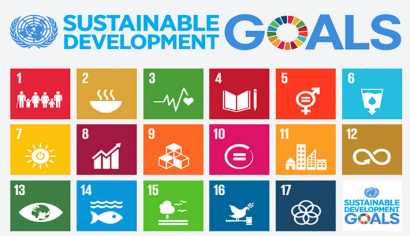A Global Campaign Promoting Toxics-Free Sustainable Development Goals
Our vision is a world where chemicals and wastes are no longer a source of harm and where all people live in safe and healthy environments, free from toxic threats to surrounding ecosystems and to future generations.
Sustainable Development Goals, Chemicals & Waste and the Path Ahead
Despite international agreements and commitments from Heads of State across the globe recognizing the inherent relationship between chemicals, waste and sustainable development, toxic chemicals and waste continue to harm human health and the environment.
In October 2015, governments adopted the 2030 Agenda for Sustainable Development and its 17 Sustainable Development Goals (SDGs). The Preamble notes a determination to take “bold and transformative steps which are urgently needed to shift the world on to a sustainable and resilient path.” The overall plan seeks to “realize the human rights of all; “achieve gender equality and the empowerment of all women and girls”; and “ensure the lasting protection of the planet and its natural resources.”
Well before Agenda 2030 was adopted, Heads of State at the 2002 World Summit on Sustainable Development in Johannesburg called for the development of a Strategic Approach to International Chemicals Management (SAICM). By 2006, governments adopted the SAICM Dubai Declaration, stating:
“The sound management of chemicals is essential if we are to achieve sustainable development, including the eradication of poverty and disease, the improvement of human health and the environment and the elevation and maintenance of the standard of living in countries at all levels of development.”
SAICM is the only international, multi-sectoral program of action that promotes cooperation in support of chemical safety objectives. The overall objective of SAICM is “to achieve the sound management of chemicals throughout their life-cycle so that, by 2020, chemicals are used and produced in ways that lead to the minimization of significant adverse effects on human health and the environment.”
However, SAICM is scheduled to expire in 2020 and it is unlikely that SAICM will achieve its overall objective within that timeframe. Agenda 2030 and the Sustainable Development Goals are not achievable without a meaningful “beyond 2020” strategy linking chemical safety and international cooperation.
Toxics-Free SDGs Campaign Objective:
A decision by the international community to continue meaningful, international, multi-stakeholder, multi-sectoral cooperation in support of chemical safety and sound chemicals management and waste objectives beyond 2020, with the understanding that advancing chemical safety should be viewed as a necessary component of the sustainable development agenda.
The Toxics-Free SDGs Global Campaign will engage civil society organizations, with the aim to secure a decision by the international community to achieve this objective.
Toxics-Free SDGs Campaign Pledge:
IPEN has drafted a Pledge, currently available in Arabic, English, French, Kiswahili, Portuguese, Russian, Spanish, and Tamil, and welcomes all public interest, non-profit, non-governmental, civil society organizations to support it. The Pledge and its support campaign will be used as a tool for conducting outreach and education, noting that local NGOs may work on chemicals, waste and/or SDGs-related issues, but have limited-to-no knowledge of the related global policies and 2020 timeframe.
Toxics-Free SDGs Campaign Resources:
Please check this page to learn more about SDGs, SAICM, IPEN's Perspectives for "Beyond 2020" and more.
Toxics-Free SDGs Campaign Activities:
IPEN Participating Organizations (POs) around the world are carrying out activities related to the Toxics-Free SDGs Campaign. These activities address agroecology, chemicals in products, endocrine disrupting chemicals, hazardous chemicals in the lifecycle of electronics, highly hazardous pesticides, lead in paint, women and chemicals, workplace right-to-know, and / or zero waste issues. Learn more about the activities here.





